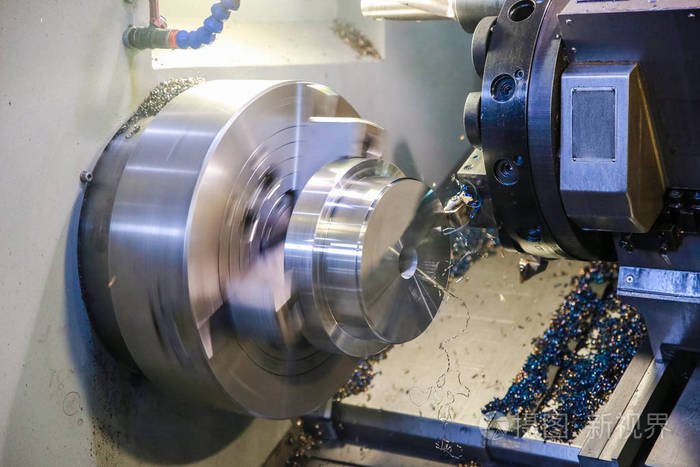Please Choose Your Language








CNC turning, a precise and automated machining process, plays a pivotal role in the automotive industry by enabling the production of complex and high-precision parts. This technology utilizes computer numerical control to operate lathes that rotate the workpiece while cutting tools shape it into desired forms. In automotive manufacturing, CNC turning is indispensable for producing components that require tight tolerances and superior surface finishes.
| Availability: | |
|---|---|
| Quantity: | |
![]()
| Product name | CNC Processing Service CNC Machining Stainless CNC Car Part |
| Micro Machining or Not | Micro Machining |
| Material | SUS/Aluminum/copper |
| Delivery Time | 15-25 Days |
| MOQ | 1 Piece |
| Process | CNC&Wire-cut |
| Surface treatment | Painting\Powder Coating\Plating\Polishing |
| Equipment | 3/4/5 Axis CNC Machining Center |
| Service | One Stop Service Machining-assembly |
| Packing | Poly Bag + Inner Box + Carton |
| Drawing Formats | PRO/E, Auto CAD, Solid Works , UG, CAD / CAM / CAE, PDF |

Our CNC Processing Service CNC Machining Stainless CNC Car Part delivers aerospace-grade precision for industries demanding ultra-tight tolerances and corrosion resistance. Leveraging 5-axis CNC machining centers (e.g., DMG MORI duoBLOCK with integrated thermal error compensation) and Swiss-type lathes (Citizen M320), we specialize in producing stainless steel 316L (for corrosion resistance) and aluminum 7075 (for high strength) components with ±0.005 mm accuracy . From transmission shafts to valve bodies, our solutions combine burr-free surfaces (Ra ≤0.8 μm) with complex geometries—including undercuts, threaded features, and 3D contours—ensuring OE-level performance for automotive, medical, and industrial applications.
Achieve ±0.002 mm roundness on small-diameter shafts (e.g., 2mm diameter medical implants) and ±0.01 mm straightness on long components (e.g., 500mm industrial rods) using closed-loop feedback systems and high-speed spindles (45,000 RPM) with ceramic bearings for reduced vibration .
Support for multi-axis milling-turning (5-axis simultaneous) to create helical gears (DIN 5 quality) and cross-drilled holes (±0.02 mm positional accuracy) in a single setup, eliminating secondary operations.
Process high-strength alloys (Inconel 718 for high-temperature resistance, titanium Ti-6Al-4V for strength-to-weight ratio) and non-ferrous metals with minimum feature size of 0.1 mm (e.g., micro-grooves for fluid dynamics) .
Specialized handling for biocompatible materials (stainless steel 316L) using cleanroom-grade coolant systems (ISO Class 7) and particle filtration (0.2 μm) to meet medical device standards (ISO 13485).
Bar feeder systems (6m capacity) enable continuous production of long-shaft parts (length-to-diameter ratio 30:1) with zero setup time between batches, reducing production costs by 18% .
AI-driven predictive maintenance (using vibration analysis and oil sampling) reduces machine downtime by 25%, ensuring consistent lead times (3–15 days) even for high-mix low-volume orders.
Offer nitriding (case depth 0.1–0.5mm, 500HV hardness) for wear resistance, electropolishing (Ra ≤0.2 μm) for hygienic surfaces, and PTFE coating (friction coefficient 0.05) for low-friction applications .
Aerospace parts undergo eddy current testing (ASTM E2437) and X-ray inspection to detect subsurface defects, critical for flight safety components.
Automotive: Turbocharger components (balance tolerance ≤0.01g·mm to prevent vibration), EV battery connectors (conductivity ≥40 S/m), and CV joint parts (fatigue life ≥10⁶ cycles).
Medical: Implantable device components (USP Class VI compliant, cytotoxicity tested), surgical instrument hinges (30,000+ cycle durability), and MRI-compatible brackets (non-magnetic materials only).
Aerospace: Turbine blade root slots (±0.005 mm profile accuracy for airflow optimization), landing gear bushings (wear resistance ≥5,000 hours), and fasteners ( tensile strength ≥1200 MPa).
Industrial: Hydraulic cylinder shafts (straightness ≤0.002 mm/m to prevent seal leakage), bearing races (roundness ≤0.001 mm for smooth rotation), and precision screws (thread class 3A for tight fits).
Reverse Engineering: Convert physical samples into CAD models using 3D scanning (accuracy ±0.02 mm with Artec Eva scanner) and Geomagic Design X software, including tolerance analysis for legacy part replication.
Complex Geometry Solutions: Expertise in micro-machining (features ≤0.5mm) and deep hole drilling (aspect ratio 20:1 with coolant-through tools) for electronics (heat sinks) and optics (lens mounts).
Full Compliance: ISO 9001:2025 and AS9100D certifications, with FAIR reports (First Article Inspection Reports) and PPAP documentation (Level 3–5) for automotive and aerospace clients, including material traceability from raw stock to finished part.